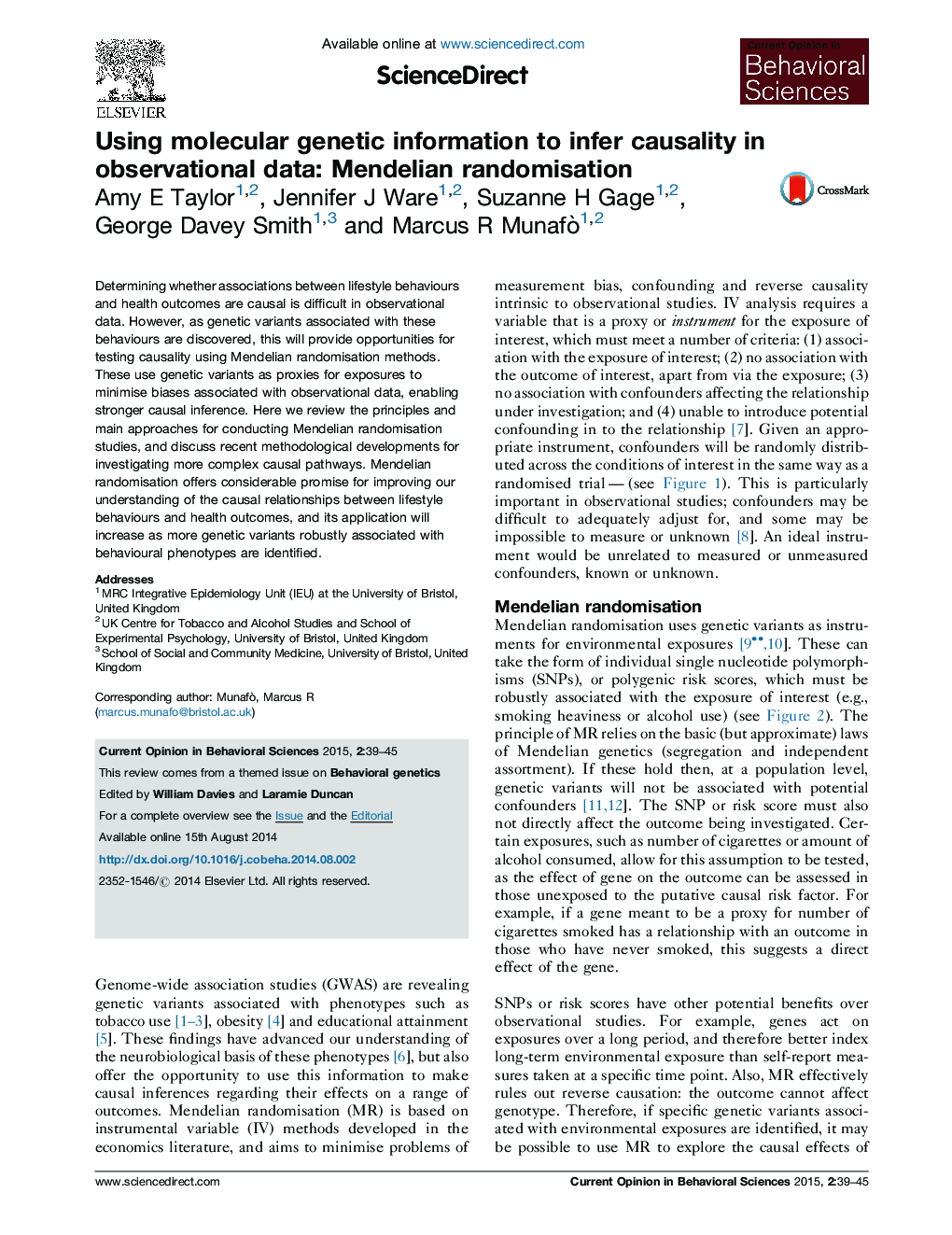| Article ID | Journal | Published Year | Pages | File Type |
|---|---|---|---|---|
| 6260799 | Current Opinion in Behavioral Sciences | 2015 | 7 Pages |
â¢Mendelian randomisation uses genetic variants as proxies for environmental exposures.â¢Enables stronger causal inference in observational data about the effects of these exposures.â¢Requires variants robustly associated with exposures, and large samples for adequate power.
Determining whether associations between lifestyle behaviours and health outcomes are causal is difficult in observational data. However, as genetic variants associated with these behaviours are discovered, this will provide opportunities for testing causality using Mendelian randomisation methods. These use genetic variants as proxies for exposures to minimise biases associated with observational data, enabling stronger causal inference. Here we review the principles and main approaches for conducting Mendelian randomisation studies, and discuss recent methodological developments for investigating more complex causal pathways. Mendelian randomisation offers considerable promise for improving our understanding of the causal relationships between lifestyle behaviours and health outcomes, and its application will increase as more genetic variants robustly associated with behavioural phenotypes are identified.
